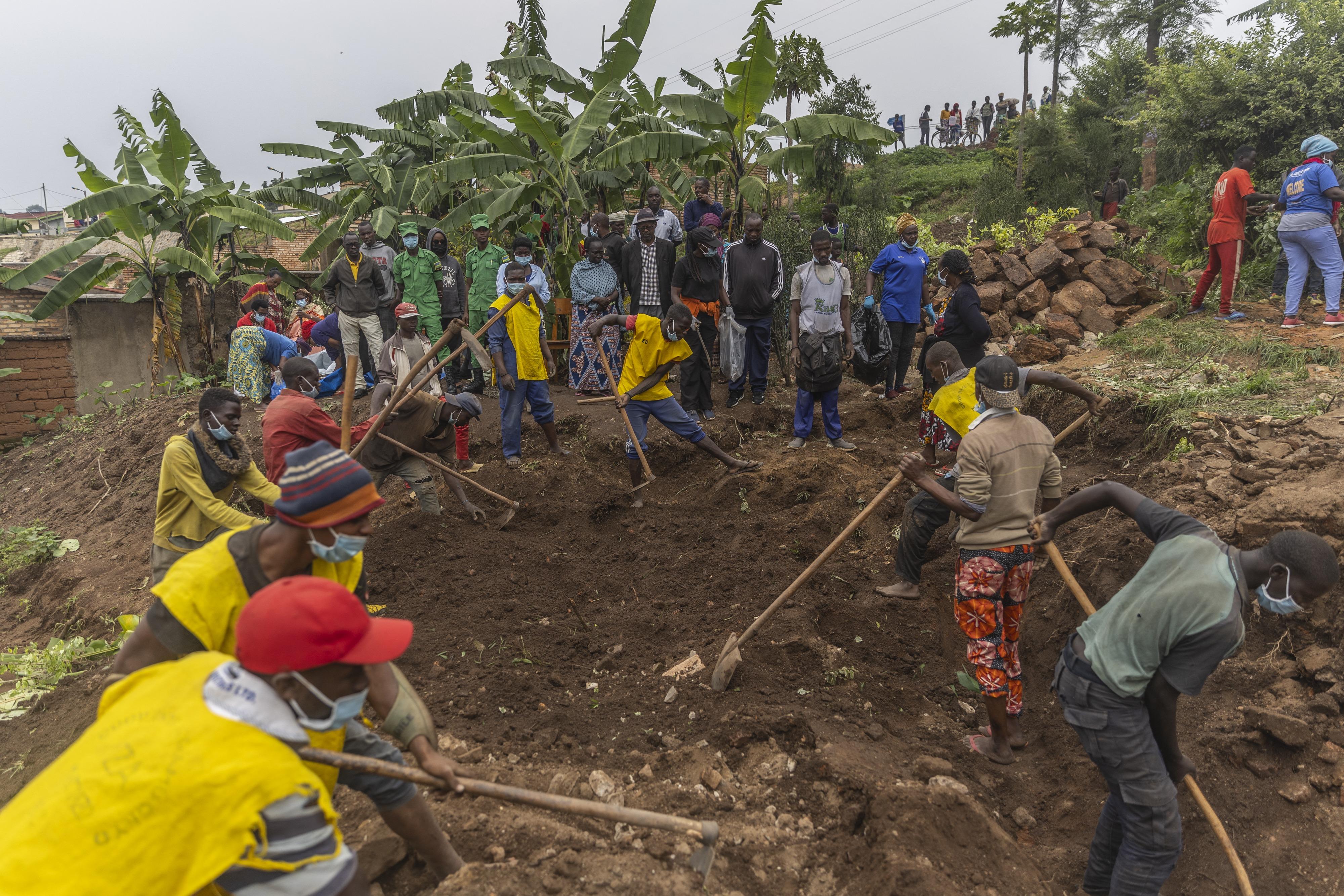 Villagers and volunteers dig looking for human remains of victims of the 1994 Rwandan Genocide hidden under the foundations of a house in Ngoma, Rwanda on January 23, 2024, where more than 82 bodies have been found since Jan 21, 2024. In 2024, Rwanda will commemorate Kwibuka 30, with the 30th anniversary of the Genocide against the Tutsi, when around 800,000 people were slaughtered between April and July 1994. (PHOTO / AFP)
Villagers and volunteers dig looking for human remains of victims of the 1994 Rwandan Genocide hidden under the foundations of a house in Ngoma, Rwanda on January 23, 2024, where more than 82 bodies have been found since Jan 21, 2024. In 2024, Rwanda will commemorate Kwibuka 30, with the 30th anniversary of the Genocide against the Tutsi, when around 800,000 people were slaughtered between April and July 1994. (PHOTO / AFP)
KIGALI - The International Residual Mechanism for Criminal Tribunals (IRMCT) will close its field office in Rwanda's capital, Kigali, on Aug 31 after completing genocide trials, an official has said.
The tribunal's registrar, Abubacarr Tambadou, made this announcement in a statement on Friday following his visit to Rwanda, where he held talks with various senior government officials.
The mechanism, which was handling cases of the 1994 genocide against the Tutsi, no longer has any trials to conduct following the prosecutor's conclusion that two of the remaining men on the IRMCT's wanted list were found to have died
Set up by the UN Security Council in December 2010 to complete the remaining tasks of the International Criminal Tribunal for Rwanda, the IRMCT has operated a field office in Kigali for about three decades.
ALSO READ: Rwanda receives genocide suspect deported from Malawi
Tambadou said the office closure follows a decision by the Hague-based court to drop the case against prominent Rwanda genocide suspect Felicien Kabuga, who was deemed unfit to stand trial last year.
The mechanism, which was handling cases of the 1994 genocide against the Tutsi, no longer has any trials to conduct following the prosecutor's conclusion that two of the remaining men on the IRMCT's wanted list, Protais Mpiranya and Augustin Bizimana, were found to have died, he said.
"The closure of the field office does not mean disengagement with Rwanda as the mechanism will only change its approach to its work," Tambadou said.
He added that the mechanism will continue its "mandated functions, such as witness protection, mainly from the Arusha branch of the Mechanism," while a small team of staff from the office of the prosecutor will remain in Rwanda to continue assisting national authorities, particularly in tracking fugitives.
READ MORE: Long-awaited Rwanda genocide trial starts despite suspect's boycott
Tambadou, who was in Rwanda from Feb 11 to 16, discussed the need for continued collaboration with various Rwandan senior government officials as well as representatives from IBUKA, an umbrella association of genocide survivor organizations in Rwanda.


